David Ford - Interview
by Benjamin Howarth
published: 29 / 6 / 2018

intro
As he prepares to release his fifth solo album, ‘Animal Spirits’, David Ford tells Ben Howarth how an obsession with the causes of the 2007-8 banking crisis prompted him to write a ‘concept’ album about market economics.
In 2011, singer-songwriter David Ford published an autobiography, ‘I Choose This – How To Nearly Make It In the Music Industry’. It told the story of his band Easyworld, who were in the last generation of bands to ‘enjoy’ lavish record company budgets being spent on utterly pointless promotion activities. Having gone solo, it initially looked like he would breakthrough into genuine fame, but the recording of his second album proved problematic and even when he’d finally settled on nine songs he was happy with, he ended up in a prolonged battle with his label over the track-listing. Rather than continue to slog it out trying to get that elusive spot on a radio playlist or a slot on ‘Later with Jools Holland’, he parted ways with the music industry and took a different path. His self-released 2010 album ‘Let The Hard Times Roll’ saw him embrace eclecticism – with indie rock rubbing shoulders with bar-room blues, acoustic folk and piano ballads. No doubt his label would have insisted on a re-think, but this record saw Ford start mapping out his own territory. Though he has never been acknowledged for this in the mainstream media (it is rare to see his records even get a review), plenty of bands with much bigger profiles would kill for his audience – devotees who buy every record and come to every show. Never the most prolific, his output since has seen just one full-length album, 2013’s ‘Charge’, which saw him distil the themes introduced on ‘Let The Hard Times Roll’ into a more focussed set of songs. But between that, he has released a long series of thematic EPs, including songs recorded with a string section and even a set recorded on a four-track tape recorder (the kind a 90s band would do demos on). One of those EPs, ‘Austerity Measures’ saw him pen five songs about money – at the time, it felt like an amusing diversion (though two of the tracks were reworked and reappeared on ‘Charge’). It turned out, however, to mark out a new direction in his songwriting. On the song, ‘It’s The Economy Stupid’, he ranted about the economic crash and the political idiocy that followed in its wake. It’s a great track but was never intended to be anything other than a howl of range. Yet, from there, he began exploring what really happened to the economy in the lead up to the 2007-8 crash. On his fifth album, ‘Animal Spirits’ we get the fruits of this, by his own admission, obsessive interest in the economy. His most cohesive set of songs, each of the ten tracks is inspired – some very cryptically – by a theme from economics. It picks up the threads from ‘Austerity Measures’, but also finds him sharpen the edges of his many musical tropes – it is at least the equal of all of his recent output and may in time prove to be his best work. In his second interview with Pennyblackmusic, we discussed what motivated his first ‘concept’ album. Pennyblackmusic: So, your new record has a very deliberate theme of the economy. What drove you to make an album about this and was it always the plan, or did the theme evolve as you worked on the songs? David Ford: What led me to the subject of economics? A couple of things really. I had this real obsession with the financial crash, which happened a decade ago now. It was such a cataclysmic event and yet its causes seem so obvious, once you read even a little bit about it. It seems like the most obvious and predictable outcome conceivable – if you look at what people were doing to make the problem what it was. It seems like it was absolutely inevitable and yet all these very nice, smart people did not see it coming. I just could not shake the feeling of how the hell could you not see that. So that led me to thinking, ‘what is economics then?’ if you could be the greatest expert in that field and not see the greatest event in that field coming. I wanted to know more about how people could be an expert in, yet so very poor at predicting what would happen. And that is what economics is for – forecasting and then deciding all the correct and safe moves to respond, so that we have a stable and prosperous society. If you can get that wrong to such a horrendous extent, what else are you wrong about? What else is everyone wrong about. It led me down this rabbit hole of questioning every facet of truth – because economics is not just about finances, but about behavioural economics, essentially why people choose to do what they do. So that became an obsession – I wanted to read more books, find out what we don’t know, how much I don’t know and how little I don’t know about what I don’t know. It was that really – I’m still not over it now, but I have had to drag myself away from that subject matter and write about something else. It is kind of self-indulgent that I did this record, I wrote it for my own reasons and I never really expected that anyone else would be remotely interested. But I wanted to make it for myself as a little mental exercise as much as anyone else. PB: That said, anyone reading this answer might be thinking, “Oh God this is going to be a really dry record with numbers and theory”, but you’ve tended to use the economic theme as a starting point and there are a few where you could easily completely miss the reference to economics if they weren’t in context with the other tracks? DF: I like to bury the dry and style theory in something that is a bit more in keeping with the vernacular of popular music, which meant using lots of metaphors and creating situations to explore the idea. It wasn’t actually that difficult to do – because economics is about human behaviour and how humans react in certain situations. I found it relatively easy to look at the behaviour of credit ratings agencies, for example, and think it was a bit like the ugly kid getting seduced by the very attractive kid at school, getting their head turned and exhibiting strange behaviour and doing things they wouldn’t normally do, stepping away from their better judgment. If you think about all the players in the economy as regular human beings, with all those emotions and frailties, then you can write songs about economics that are human, sometimes beautiful, sad or infuriating in the way that people are. PB: Leading on from that question, were all the songs built out from the economic theme, or were there some where you maybe would have written the song anyway and were able to identify a theme later and work it in? DF: Most of them started from the point of an idea or theory I wanted to address that came from economics. But there were some songs, maybe the ballads and love songs were more emotive moments that I wanted to include, and those were more cryptic and had vague notions of economics, rather than anything specific. But, because economics is about human beings, I found it very easy to write a song that you think is a love song by thinking about other elements – the incentive structure in the investment banking industry. That absolutely will not come across in the song – but that’s not the point. The point is that the things which make the economy difficult to predict and understand are the same things that make humans difficult to predict and understand. Sometimes, we do things that if we think about them we know are bad ideas, but the heart rules the head. Yet, we’ve been taught to believe that when it comes to economics, we are all these cold actors who will always act rationally, which just isn’t the case – sometimes we are just batshit crazy and we do those crazy things in our professional lives just as much as in our private lives. PB: One example of that is ‘Why Don’t You Answer Your Telephone?’, which comes across as just a howl of confusion? DF: Yes, that song doesn’t really make any mention of economics – but it’s about imperfect information, this person who doesn’t know where another person is. That came from a book I was reading – and I cannot for the life of me find the quote, because people ask me about that song a lot – essentially about a time when there was a huge financial crisis kicking off, but as it was all happening, the brokers just stopped answering their phones. So, you had all these people losing stock and desperately trying to get out of this losing position, and the people who they were relying on to have their back were panicking and decided not to answer their phones. I was just imagining the panic and the desperation you’d have if you were watching this happen, trying to get hold of the person who was meant to sort it out and the desperation you’d have when you couldn’t. I just came up with that line as a kind of desperate plea. I think everyone at some time has really needed to get hold of someone and they are just not answering their phone. But I wanted to use that to look at the idea of imperfect information and the idea in economics that markets will deliver ideal outcomes if everyone involved has perfect and equal information – I don’t know if that situation has ever happened. So maybe if market economics is based on perfect information, perhaps that theory is actually bullshit. Again, these are the thought processes that went into a song that doesn’t actually directly reflect that, but I like to think this is all part of the intellectual experience of listening to the record. PB: You mentioned going back into quotes, and I know you have put together sleeve-notes. Are these going to give the background to every song or will they be a more general ‘dissertation’ on the themes of the record? DF: I did both – I have put together a page as an introduction to what I wanted to do with the record. And then each song has a page with the lyrics and a very brief description, sometimes quite cryptic, of what I wanted each song to be about – usually based on how much space I had left over on the page after printing out the lyrics! Some could be described as pretty out-there pretension – others are a bit more straightforward. PB: Its actually quite unusual, I think, for a songwriter to be as upfront and specific about what the song is about and where it came from. Quite a lot of people I interview will be keen to keep that to themselves. Is that something you’ve done specifically for this album or have you always aimed to be quite open about the motivations behind your songs? DF: Oh, if I put my cynical hat on, I’d say that maybe the reason some people are quite guarded about what their songs are about is maybe they aren’t really about anything at all. I have only really become interested in the mechanics of songwriting in the last few years. It’s something I am taking more and more seriously – I am considering writing a book about the pursuit of songwriting. I have been doing more collaborative things with other songwriters, I’ve been on a few songwriting retreats and things like that. I find them really enlightening – but I do find that other people’s processes are really wacky to me. Particularly I can’t really believe how quickly people are able to come up with an idea and keep it. I am an obsessive re-drafter, and it can take me months and months, sometimes years, to write songs. I have to be sure that every song is perfect, from my perspective, and I have to be able to defend every single word and every single comma in every song. I am in awe of people who can write quickly and just get it down. It doesn’t mean the songs aren’t good. But I have to have songs that are very carefully thought about and considered, it’s the only way I can do and live with myself. I think that I have always had very specific subjects for every song, they are always aimed at a clear purpose. But, this album is certainly different in that it’s the first time there has been one theme running throughout the whole record and every track. I hope that even if all you want from the album is some cool pop songs, it works on that level. But the theme running through it is what takes some thought and care. I think it was successful – I didn’t want it to sound like a slightly weird vanity project, but at the same time, I did want to do a slightly weird vanity project! PB: I was going to ask about these songwriter’s retreats. Hopefully this doesn’t sound rude, but my impression of you in the past has always been that you work in a fairly solitary way and you like to work on your own, in your own way and at your own pace. That certainly is how your descriptions of making the ‘Songs For The Road’ album in your book (‘I Choose This – How To Nearly Make It In The Music Industry’) come across? So I have to admit I was bit surprised when I saw you were doing this, and I wonder, first, how you got into that and second, whether you felt out of your comfort zone and what you learned from doing them? Has it changed the way you will write songs for your next album? DF: Well, I definitely was outside of my comfort zone. But whenever I have done, and I’ve only a couple, it feels like its outside of the comfort zone of everyone who’s there – we’re all terrified and nervous. I don’t know if I really should say this, but my decision to go to them was mainly so I could eavesdrop. How the hell do other people write songs? So, to actually sit in on that process and hang out with people, I sort of interview them as they are trying to write. Where do their inspirations come from? Whether you write songs music first with an instrument or you write songs by wandering round the garden and having ideas pop into your head. Everyone’s processes are completely different, and all of them work. For an artform, I find that quite incredible – I know you can do songwriting courses, but it’s an artform that is largely self-taught. The great songwriters are just people who have done it for themselves – they’ve just got it. I don’t know if taking part will ever change the way I write songs. I have done a few co-written songs on these camps, but I think for me it’s a fun thing to do, like a hobby. I think I separate the process of writing songs on a retreat from the process of writing songs to go on an album. That said, some of things I have done on those camps have been really interesting. I could see them being part of something I’d do as a side-project, not that my main job isn’t keeping me busy! PB: So, going back to the album that you have just made, what made you decide to record in the US for the first time? Previously, you’d always made albums at home. DF: Yes, all my previous albums were very much made on my own, by myself. But I am aware that as a musician, I am something of a decathlete. I’m not really the best at anything, but over the course of everything, then I am. I am the songwriting, guitar-playing, drum-playing, gig-booking, artwork-creating, studio-engineering guy. I think I can do everything to a decent enough standard. But I am aware that there are people out there who can do the individual parts of that better than me, and James Brown is one of those guys. I first met him sixteen years ago and he has played a big part on all of my solo records since the second one, either as an engineer or a producer, but this is the first time I’ve gone out there and made the whole thing with him. He offered that I could come and record at his place in New York, and I just bit his hand off. I like being able to produce myself, at first I did it out of necessity and then out of choice. But it had become a necessity again, so to have the chance to work with someone I know as well as James, and someone that I trust. It was nice to be entirely responsible. It’s nice to be able to have someone who I trust to give a second opinion. I couldn’t have worked with anyone else, he’s the only person I would let take care of my babies. PB: Did working with someone else force you to take more decisions in advance, or as there still lots of room to let the songs develop in the studio? DF: We had the luxury of the studio being at James’ house, in a barn at the end of his garden. And we had a lot of time, so we weren’t constrained. I wouldn’t say it was lazy, but we certainly weren’t keeping a hectic schedule. I made demos of every song, but I deliberately made them just acoustic guitar and voice, live at my kitchen table. Normally I would produce the whole track, send them to him and he would add the finishing touches. But I wanted it to be very much a collaborative and from-the-ground-up process with him very much producing, not just finishing these songs. It took a month, maybe a month and a half of studio time. A long time if you are working live with a band, but when it was just me and him recording everything between us, it does take a lot longer. We went down a few blind alleys and had to start again on a couple of songs – and there are always some songs that are difficult, normally the ones you assume will be easy. The really cool thing about making a record is that the songs are a bit like your babies. I know that sounds a bit flippant, but it is true because they all have their own characters. There are some songs I feel warmth to because they have always been good to me. They’ve never given me any trouble, or caused any heartache, and there are other songs that have been such difficult little brags. You still love them, but they never stop giving you shit. PB: Presumably that influences which ones you want to play live as well? DF: It does. There are some songs I have been playing for nearly fifteen years now, but I never get bored of them, I always play them. There are others that are newer, but I just can’t quite love them in the same way. It would be really interesting to let someone else choose the set list one time, just to see what songs other people want me to do. I’d never actually do it, because I am such a control freak. I feel like I know what songs are my best ones, and those are the ones I play, because I always feel each show should be a greatest hits show. PB: You did those three small shows in London last year – at the Islington pub – and I think by the third night, it was quite interesting to see you digging out the songs you never normally play. DF: Yes, night two was the show we’d been doing on tour. The other two were essentially thrown together. I think I just about got away with it – over the course of the three nights, I played about forty songs. I didn’t know I had that many I could do. That was a bit of an exercise is dredging things up! PB: Although you kind of know with those kinds of gigs, it’s really only the hardcore element of your fanbase that will be there for every night. DF: It was fun, but I think I would hesitate to sign up for three nights in a row with no songs repeated. The same songs again is fine, but a new setlist for every gig is a challenge. PB: If I am correct, I believe you’d essentially finished making ‘Animal Spirits’ at least a year ago… DF: We recorded it in June 2016, so it’s now nearly two years old. PB: And you also released ‘The Union’ EP last year. Was that recorded at the same time? DF: That was two songs that we recorded at the same time as ‘Animal Spirits’. They were songs that didn’t fit thematically for the album, but that James really liked and wanted to record. They didn’t have an economics bone in their body, so I couldn’t let them go on the record. But the concept was always more my thing than James’, he was just picking what he thought were the best songs (as indeed he should!). the EP were a few songs that didn’t make it, one song that did, and then a couple of other songs that were just around at that time that I thought make a nice little record. PB: There are some crackers on that record, I’d say. ‘A Hundred Streets’ has to be one of the best things you’ve done… DF: Yeah, I wrote that for the film, ‘A Hundred Streets’. It was great to be asked. The guy who wrote the screenplay and he’s been to a bunch of my gigs. I originally played at the fundraising night for people who were going to contribute to the making of the film. So, I had kind of been involved in it from the beginning. To be honest, I didn’t think he’d even get the film made, but he is clearly very persuasive and ended up getting both Idris Elba and Gemma Arterton on board. Decent film. I wrote the song and it was on the soundtrack – but James really liked the song and felt he could do a more beefy mix. The one that is on the film I mixed myself, and I’m not the best mixer, while James actually is the best mixer, and he has a Grammy to prove it! PB: One of the things that struck me listening to ‘Animal Spirits’, was just how very much focussed around being a two-sided album with a very noticeable second half – two sets of five songs. DF: I am probably showing my age, but I have always seen an album as being two sides. It’s old fashioned, and I am not one of these people who thinks that music has to fit that format, but I do find something very pleasing to present something as a body of songs that can fit on two sides of vinyl, about forty minutes, maybe up to fifty if you aren’t very succinct, like I tend not to be. I find it really focussing to think about it in those terms. And also, in the same way that there are ways you should structure a novel or a play, there are reasons they follow plot arcs, it’s because it works. I think the same applies for an album. Usually I find albums very easy to come up with my track listing. On my second album, ‘Songs For The Road’, I had these huge arguments with my record label because they wanted a different tracklisting, and for me it was just wrong and doesn’t work. Of course, they wanted all the singles at the front. But for me, you’ve got to put the song ‘Songs For The Road’ at the end of that album, how could you not? It’s insane. It got really dark on that record, and I could not budge on that tracklisting. Thankfully, since then, I have not had any record label intervention! So that is why on this one, track one on side two starts with the sound of a song. So even if you are listening to the record on Spotify or something, you know that you get these little moments of punctuation. PB: We’re speaking a few weeks before the album is officially released, and I imagine from the way you’ve described it that some of your fans will be expecting it to be similar in feel to songs like ‘State Of The Union’ or ‘It’s The Economy, Stupid’. They will probably be expecting something directly political and quite angry. But the album isn’t really like that at all… DF: No, and if anything, I like to think it’s a little more mature. I almost blush a bit about writing directly political songs, now, because having researched some of the underlying issues I was writing about then, I realised that I didn’t know what I was talking about. So, actually, part of the whole point of the record is about having more humility about when you spout your opinions. It doesn’t really suggest that any particular path is right – it does suggest some paths are wrong. ‘Downmarket’ is a pretty robust critique of market fundamentalism, but that’s not to say the opposite is a better idea. I think a fundamental approach to something that is such an imprecise science is a very bad idea, you allow your ideology to rule your thought processes and you lose the critical faculties. In that respect, it’s a little more focussed. I mean ‘State Of The Union’ was just a rant, screaming into a storm, without – I must confess – a huge amount of direction of that ire, at the time. I was much younger then… as I get older, I feel like I need to be more focussed. The anger doesn’t feel like it’s me, anymore. If anything, I think this is more purposeful. For me personally, this feels like the biggest achievement I have had as a songwriter, because it was the biggest challenge to make it work. Whether people like it, get it is another matter. And, me being me, I couldn’t really give a shit! It’s very important to me that what I present is my thing, something that I need to say to you… rather than just asking people what they want to hear. I think that is the difference between entertainment and art. That’s always made it hard for the people who have been trying to help me have a career, it’s been difficult for them! PB: I think the final thing I should ask about is the tour you have coming up and give you a chance to plug that. DF: Yes, I am doing a very short tour of the North Eastern United States before a UK tour. That starts on 8th May… PB: Oh, quite soon. DF: Oh, don’t tell me it’s soon, I will feel very unprepared. I am playing a solo show with lots of toys and lots of noise. I have recruited a few opening acts, but most of the UK shows will be opened by Beth Rowley, so make sure you get there early. PB: Thank you.
Band Links:-
http://davidfordmusic.com/https://en-gb.facebook.com/davidfordmusic/
https://twitter.com/davidfordisdead
Picture Gallery:-
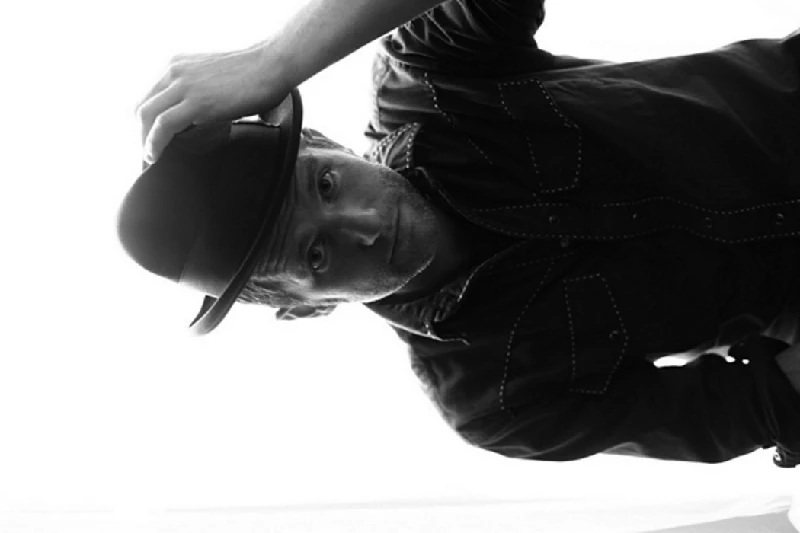
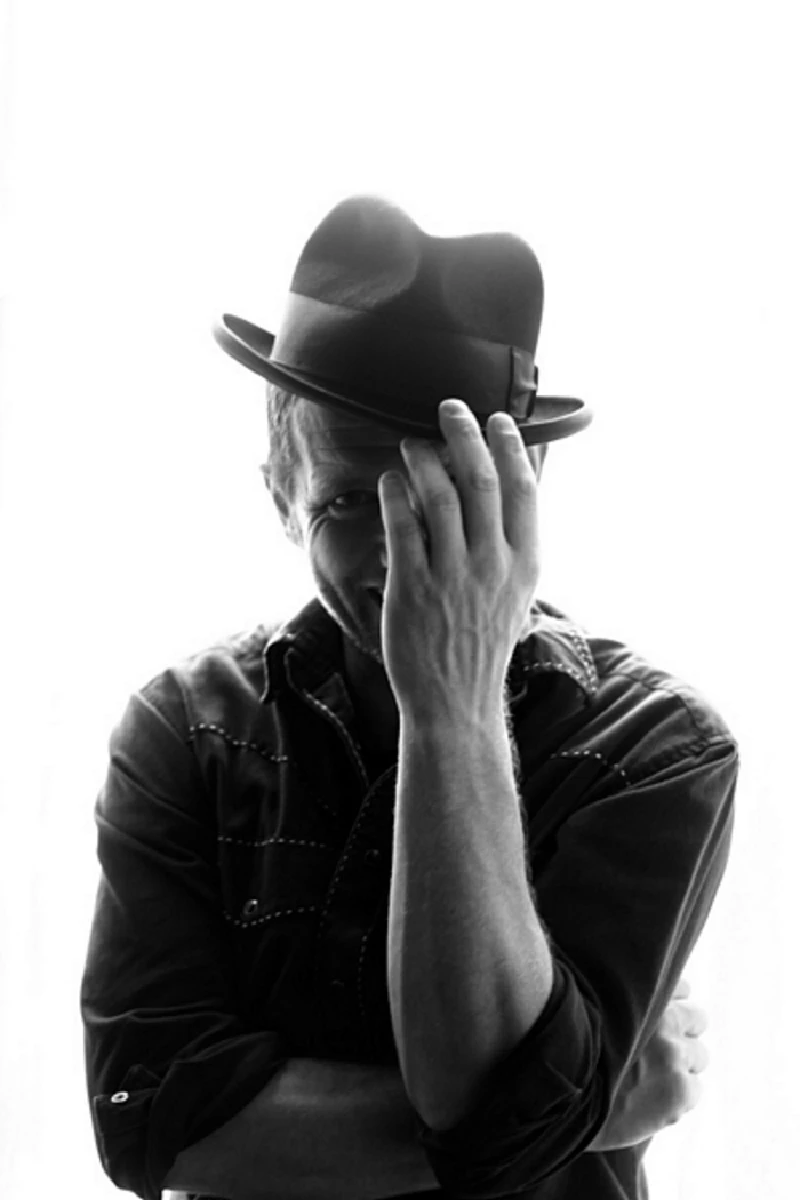
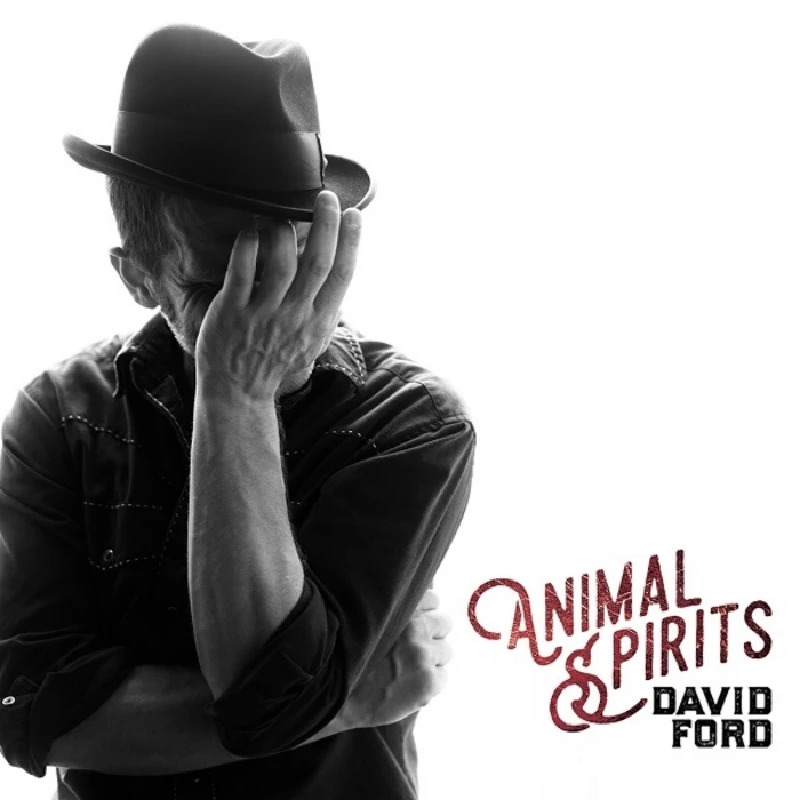
Visitor Comments:- |
| 864 Posted By: Ben, London on 16 May 2018 |
|
Hi Chris. Thanks for posting! Glad you liked the interview, I really enjoyed doing it. Luckily we didn't cause you to end up at the wrong station. Ben
|
| 861 Posted By: Chris, London on 14 May 2018 |
|
In an age when "interviews" are often just "Email back the answer to these questions", I REALLY enjoyed this piece. It was clear that the interviewer had done his research, and drew out some really thoughtful and interesting insights. The staff at the station had to tell me to get off the train, as I couldn't stop reading! Keep up the great work.
|
interviews |
|
Interview (2013) |
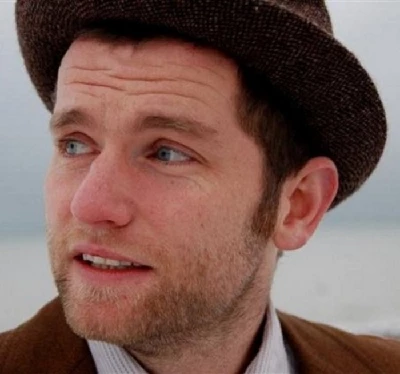
|
| Ben Howarth speaks to critically acclaimed singer-songwriter David Ford about his forthcoming fourth solo album, 'Charge', and new tour |
live reviews |
|
Deaf Institute, Manchester, 24/3/2013 |
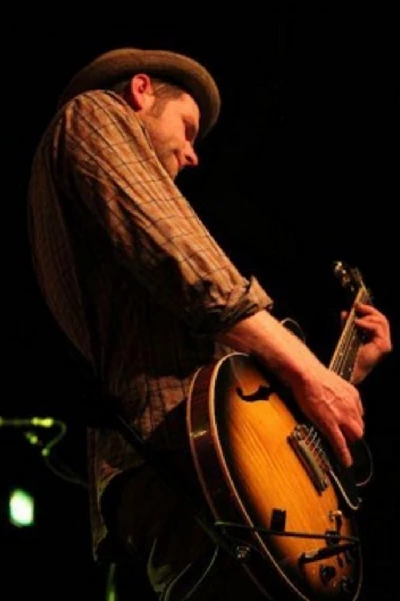
|
| At the Deaf Institute in Manchester, Dixie Ernill watches singer-songwriter David Ford play a superb set alongside Emily Grove and Jarrod Dickenson to promote his recent album, 'Charge' |
| Academy, Manchester, 30/10/2007 |
reviews |
|
Songs for the Road (2007) |
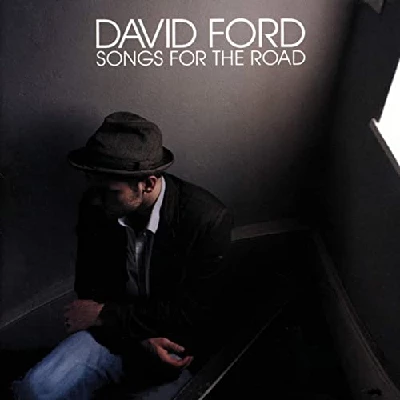
|
| Breathtaking and heart melting qulaity pop on second album from singer-songwriter David Ford |
most viewed articles
current edition
Carl Ewens - David Bowie 1964 to 1982 On Track: Every Album, Every SongArmory Show - Interview with Richard Jobson
John McKay - Interview
Colin Blunstone - Thalia Hall, Chicago, 16/7/2025
Bathers - Photoscapes 1
Billie Eilish - O2 Arena, London, 10/7/2025
Loft - Interview
Visor Fest - Valencia, Spain, 26/9/2025...27/9/2025
Sir Tim Rice - Interview
Robert Forster - Interview
previous editions
Manic Street Preachers - (Gig of a Lifetime) Millennium Stadium, Cardiff, December 1999Heavenly - P.U.N.K. Girl EP
Beautiful South - Ten Songs That Made Me Love...
Peter Perrett - In Dreams Begin Responsibilities Interview Part One
Boomtown Rats - Ten Songs That Made Me Love....
Oasis - Oasis, Earl's Court, London, 1995
Coldplay - Wembley Arena. London, 16/8/2022
Trudie Myerscough-Harris - Interview
Prolapse - Interview
Pixies - Ten Songs That Made Me Love...
most viewed reviews
current edition
Davey Woodward - Mumbo in the JumboSick Man of Europe - The Sick Man of Europe
Lucy Spraggan - Other Sides of the Moon
Amy Macdonald - Is This What You've Been Waiting For?
Phew, Erika Kobayashi,, Dieter Moebius - Radium Girls
Suzanne Vega - Flying With Angels
Bush - I Beat Loneliness
Alice Cooper - The Revenge of Alice Cooper
Blueboy - 2
Cynthia Erivo - I Forgive You
Pennyblackmusic Regular Contributors
Adrian Janes
Amanda J. Window
Andrew Twambley
Anthony Dhanendran
Benjamin Howarth
Cila Warncke
Daniel Cressey
Darren Aston
Dastardly
Dave Goodwin
Denzil Watson
Dominic B. Simpson
Eoghan Lyng
Fiona Hutchings
Harry Sherriff
Helen Tipping
Jamie Rowland
John Clarkson
Julie Cruickshank
Kimberly Bright
Lisa Torem
Maarten Schiethart